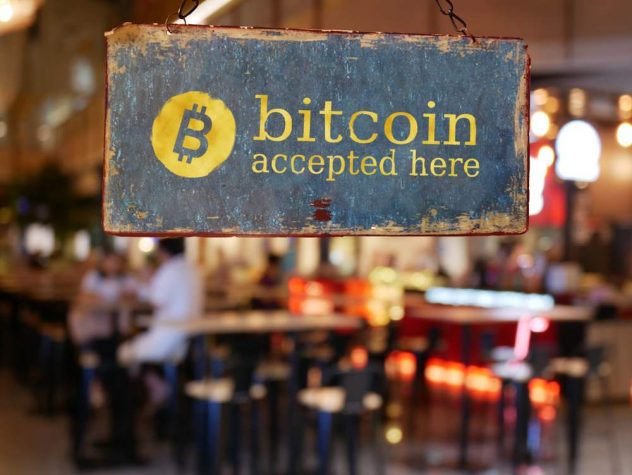 Bitcoins have emerged as a $230 billion asset class at the current price. At the peak of its price, just a month ago, Bitcoin was a $450 billion asset class. These numbers may be subject to fluctuations and may not carry too much weight. What matters is that Bitcoin is emerging as a very important currency class on its own. Over a period of time, central banks, governments and businesses will have to plan, assess or reassess their approach towards Bitcoin. The world’s largest companies are finding it harder to ignore bitcoin and other cryptocurrencies, with many announcing plans to embrace digital assets as valuations soar. Mastercard recently said it would support direct payments for some cryptocurrencies, starting later this year. That’s a major boost for crypto transactions, though like any other company that’s expanding its cryptocurrency strategy, Mastercard will have to convince merchants and consumers to get on board.
Bitcoins have emerged as a $230 billion asset class at the current price. At the peak of its price, just a month ago, Bitcoin was a $450 billion asset class. These numbers may be subject to fluctuations and may not carry too much weight. What matters is that Bitcoin is emerging as a very important currency class on its own. Over a period of time, central banks, governments and businesses will have to plan, assess or reassess their approach towards Bitcoin. The world’s largest companies are finding it harder to ignore bitcoin and other cryptocurrencies, with many announcing plans to embrace digital assets as valuations soar. Mastercard recently said it would support direct payments for some cryptocurrencies, starting later this year. That’s a major boost for crypto transactions, though like any other company that’s expanding its cryptocurrency strategy, Mastercard will have to convince merchants and consumers to get on board.
In the runup to Mastercard’s announcement, several other recognizable brands have accelerated crypto plans or are jumping in for the first time. Each company has added more users and brought more interest into crypto and blockchain. Their goal is to make the process of paying in cryptocurrency as straightforward as using cash or a credit card.
Now the question becomes, “who has the best chance at taking crypto payments mainstream?” The list below shows a few companies that could help catapult the process to the next level.
VISA
Visa is now directly accepting payments in USD Coin, a cryptocurrency. Visa’s Crypto.com debit cards previously required conversion from digital currencies to a conventional currency that Visa accepts. Visa wants to take part in the rampant development of stablecoins and central bank digital currencies, and the card brand spent a chunk of its January earnings call making its pitch. In the crypto community, there’s a growing interest in stablecoins, which link their value to a government-issued currency such as the U.S. dollar as a way to avoid the volatility associated with bitcoin and other cryptocurrencies. “We can add a differentiated value to the crypto ecosystem,” said Alfred Kelly, Visa’s CEO. “We are uniquely positioned to make stablecoins more safe.”
Amazon
Everyone is waiting on Amazon. Currently, Amazon doesn’t accept Bitcoin or other cryptocurrency directly. The e-commerce giant recently floated a potential digital currency project in Mexico. It’s early stage, but Amazon is looking for ways to add value for its Prime consumers. A digital currency could provide another way for Amazon to keep shoppers inside its ecosystem, pairing its payment app with shopping, incentives and delivery.
PayPal
PayPal announced that its U.S. users can now use cryptocurrencies to make payments. This new feature is named “Checkout with Crypto”. This feature is available to anyone with cryptocurrency holdings in the U.S. The popularity of crypto investing has boosted PayPal’s earnings, resulting in a record year in 2020 and positioning both PayPal and its Venmo subsidiary to influence merchants to directly accept cryptocurrency. PayPal also plans to expand its crypto support to the U.K. over the next several months and is positioning itself as a central bank digital currency distributor.
Bank of New York Mellon,
The nation’s oldest bank, said it will “hold, transfer and issue bitcoin and other cryptocurrencies on behalf of its asset-management clients. Also, the bank hasn’t put any limits on the kinds of digital assets it will allow clients to store there.” Other major banks are also active in crypto, notably JPMorgan Chase, which recently reorganized its blockchain activities to concentrate on software and to promote its JPM Coin. Then there is Citigroup, it launched a digital asset receipt product about two years ago.
Square
Square digital wallet customers can buy and sell bitcoin for their own account. Small businesses can also accept fractional amounts of bitcoin as currency for goods and services. Square’s digital wallet is an elegant cryptocurrency solution. Cash App is Square’s peer-to-peer payment platform, which also allows users to buy and sell assets such as bitcoin and stocks.
Mastercard
With cryptocurrencies becoming more accepted as an investment and payment method, Mastercard is taking steps to make it easier for people to transact using secure digital currencies. This payments giant supports digital currencies like Bitcoin and Ethereum
The impact of Bitcoin on the financial system and how it will impact on monetary policy remains to be seen. Bitcoin and other cryptocurrencies is an idea whose time has come, not only domestically but globally. Without a doubt, mass adoption of cryptocurrency is coming.
The sooner countries began to institutionalize there markets for digital assets, the better they will be. Sure, that’s going to be a big regulatory challenge. However, the bottom-line is that Bitcoin and other cryptocurrencies need to be brought into the financial mainstream so that they don’t remain a peripheral currency.



